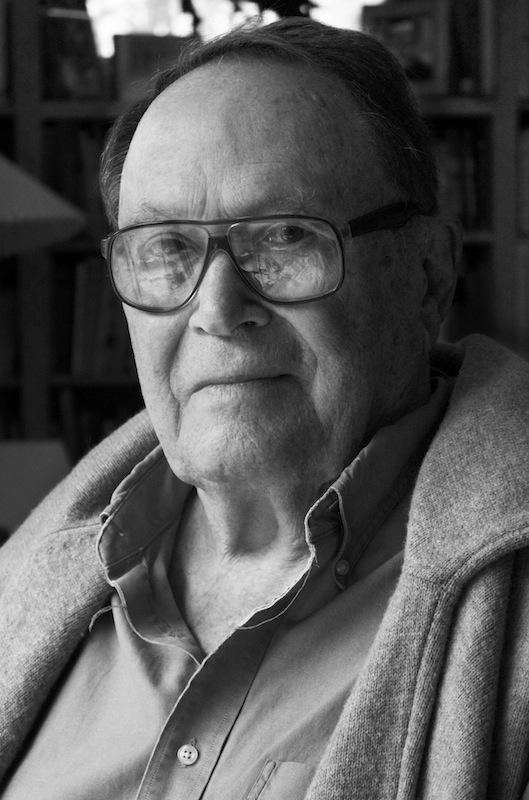The Writer
by Richard Wilbur
In her room at the prow of the house
Where light breaks, and the windows are tossed with linden,
My daughter is writing a story.
I pause in the stairwell, hearing
From her shut door a commotion of typewriter-keys
Like a chain hauled over a gunwale.
Young as she is, the stuff
Of her life is a great cargo, and some of it heavy:
I wish her a lucky passage.
But now it is she who pauses,
As if to reject my thought and its easy figure.
A stillness greatens, in which
The whole house seems to be thinking,
And then she is at it again with a bunched clamor
Of strokes, and again is silent.
I remember the dazed starling
Which was trapped in that very room, two years ago;
How we stole in, lifted a sash
And retreated, not to affright it;
And how for a helpless hour, through the crack of the door,
We watched the sleek, wild, dark
And iridescent creature
Batter against the brilliance, drop like a glove
To the hard floor, or the desk-top,
And wait then, humped and bloody,
For the wits to try it again; and how our spirits
Rose when, suddenly sure,
It lifted off from a chair-back,
Beating a smooth course for the right window
And clearing the sill of the world.
It is always a matter, my darling,
Of life or death, as I had forgotten. I wish
What I wished you before, but harder.
Richard Wilbur
March 1, 1921 - ?

- Born in New York City and grew up in North Caldwell, New Jersey
-
Fought in World War II
- Good friends with Robert Frost
- Has received two Pulitzer Prizes for Poetry
- As of 2009 teaches at Amherst College
- Known for his poetry, translations, and children's books
From Wikipedia:
Continuing the tradition of Robert Frost and W. H. Auden, Wilbur's poetry finds illumination in everyday experiences.
Poem Structure
Rhyme
There is none!
Rhythm
There is none!
Kind of.
And then I like the new poem to my daughter, the one called “The Writer.” But I enjoyed that also as a formal departure; I enjoyed not rhyming for a change.
~ Richard Wilbur
Free verse with internal consistency
Short, long, short lines make a rhythm of waves and typewritters
Interview about "The Writer"
"People sometimes imagine that a rush of love for one's daughter might produce a poem. It's not that at all—it's that two ideas, two images come together, and then you've got something to work with."
"…I don't think a poem is a message. It's a kind of performance; it's a kind of machine of feeling that other people can use."
Poem Analysis
Ship Metaphor
Bird Parallel
- The father and daughter open a window sill to help the bird
- They stand helpless, because they can't teach the bird to fly
- After watching the bird hurt itself over and over they finally see it clear the "sill of the world"
Lines to Note
-
Wilbur captures the pain of watching someone we love find their vocation
- We can't teach them to fly, but we mustn't be casually sentimental
- In the end the people we care about in life have to step through their doors themselves. All we can do is help open the doors, stand with them, and pray for a good voyage